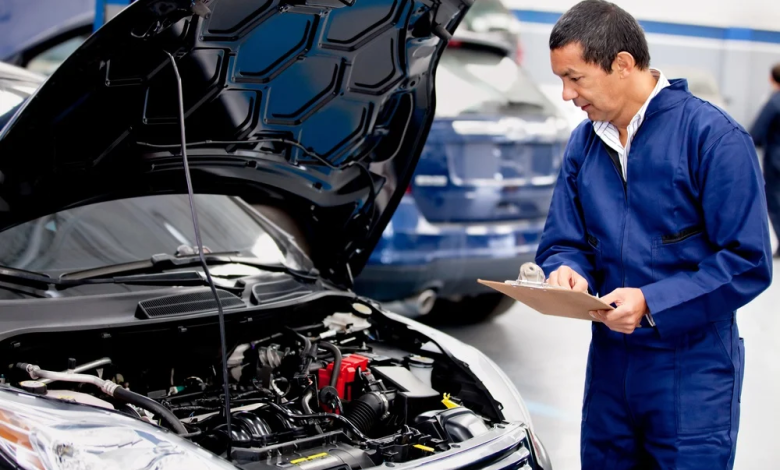
A car safety inspection is an inspection done by the government. Some states mandate this inspection once a year, while others require it before selling a car. Make sure you know the vehicle inspection laws in your state. Many states also do an emissions test to see if your car is up to date with EPA emissions requirements. MOT testing service: The MOT test, which stands for “Ministry of Transport” or “MOT,” is an annual test of a car’s safety, roadworthiness, and exhaust emissions.
At any DMV office in your state, licensed auto mechanics will check the safety of your car. These people check your car against a list of things that must be working right for it to be proven safe. This includes things like your lights, horn, and mirrors that help you be seen, as well as your steering, brakes, seatbelts, and tires. Technicians will also look for obvious dangers like fuel leaks, which can be a reason for an inspection to fail.
Here are some of the things that are looked at during an inspection:
1. Tires
First, look at your car’s tires to see if they look okay. Get down close to the wheels and tires as well as look at the tread. While you’re here, check the inflation pressure with a tire pressure gauge, which you should always have in your car and can buy for less than $10, so there’s no reason not to. Check your spare wheel less often, but make sure it’s properly inflated in case you need it. Also, make sure your wheel-changing kit is there and in good condition. (MOT testing service)Take the chance to make sure the shoe latch works ümraniye escort bayan right.
2. Brakes
Among the most basic requirements for a car’s inspection is that the brakes work. The mechanic will verify and see whether the disc brakes and rotors are too worn or if there are any leaks in the brake fluid. The parking or emergency brake will also be inspected. If your brakes feel “squishy” or are slow to respond in other ways, you might want to get them checked.
3. Lights
To safely drive your car, you need to be able to see and be seen on the road. At every safety check, you’re LEDs, rear lights, danger lights, turn signals, number plate lights, and brake lights will all be looked at. Every one of these light sources needs to work right and not be too dim.
4. Windshield
During inspections, the windshield is often checked to make sure it doesn’t block your view and to look for fractures, chips, or soft seals that might lead to bigger problems in the future.
5. Windshield Wipers
Your windshield wipers can be inspected along with your windscreen to make sure they don’t leave streaks or do anything else that makes it hard to see through. Your car does need windscreen wipers to pass inspection, so keep that in mind.
6. Mirrors
Without your rearview and side view mirrors, it’s like you can’t see out of 180 degrees of your car. If you can’t see what’s behind you, you won’t know when it’s safe to switch lanes and get out of the way, if that’s what you need to do. To pass inspection, both your side mirrors as well as your rearview mirror must be there and in good shape.
7. Seat belts
Examine the safety belts in the vehicle and pull on them to ensure they are securely fastened. Check that the air conditioning works and that the horn also works.
8. Alignment and Steering
During the inspection, all of your steering parts will be checked to make sure none of them are loose or about to break. Any steering inability during such a turn could be very dangerous, so if any worn parts are found during the inspection, the inspection could fail.
9. Suspension
Your vehicle’s suspension is what keeps the ride smooth on the rough roads and uneven roads of the world. The person doing the inspection will check to see if any of your suspension systems are broken or leaking. While you’re on your knees by the wheels, take a glance under the car to see if there are any leaks of oil or coolant.
Check on your car often
Your car should be inspected regularly even if your government does not require it due to the number of things that can go wrong. In April and October, there are nationwide car care months to bring more attention to how important these safety checks are. (MOT testing service) In April, you should take care of any harm or wear your car got over the winter and get ready for summer road trips. In October, you should make sure you’re ready for the winter to come. 2.
The fact that so many things can go wrong with your car makes it essential to have it inspected routinely. Accidents do happen, though, so it’s best to always be ready. Find resources about auto insurance to gain knowledge about the best ways to protect yourself, your car, and your wallet.